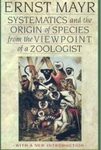![Sparks of Life Sparks of Life]()
Click to have a closer look
About this book
Contents
Customer reviews
Biography
Related titles
About this book
The idea that living beings could originate suddenly from non-living matter had persisted from antiquity, and flourished in the C19, notably in the evolutionary theory of Lamarck. It undermined the belief that only God could create life and thus aggravated the already lively controversy over evolution.
Contents
Introduction Early History Needham versus Spallanzani Worms, Molecules, and Evolution Note on Terminology Why Another Study of the Spontaneous Generation Debates? 1 Spontaneous Generation and Early Victorian Science The Standard Story of the British Debates Bastian and Burdon Sanderson Criticisms of Bastian by Lankester and Roberts The Germ Theory of Disease The Role of Heat-Resistant Spores Major Victorian Scientists through the 1860s 2 "Molecular"Theories and the Conversion of Owen and Bennett Brownian Movement and Histological Molecules Owen's Role in Developing Ideas on Spontaneous Generation John Hughes Bennett and "Histological Molecules" Owen's Change and the Darwinians Bennett's Conversion to Spontaneous Generation Further Response to Owen's Conversion 3 Bastian as Rising Star Bastian's Background Bastian Enters the Spontaneous Generation Debate Wallace and Darwin Discuss Bastian Further Support for Bastian 4 Initial Confrontation with the X Club: 1870-1873 Huxley's Tightrope Act Huxley's Attitude toward Young Men of Talent Huxley Turns against Bastian Brownian Movement and Other Rhetorical Devices The Younger Darwinians Bastian, Huxley, and the Royal Society E. Ray Lankester and Bastian 5 Colloids, PleomorphicTheories, and Cell Theories: A State of Flux Thomas Graham and Colloids Conservation of Energy and Correlation of Forces Cell Theory and the Demise of Histological Molecules Brownian Movement Revisited Life Cycles in Infusorial Monads Pleomorphist Theories of Bacteria 6 Germ Theories and the British Medical Community The Cattle Plague of 1865-66 and Germ Theories Tyndall, the Germ Theory, and the Medical Community Support in the Medical Community for Bastian The Pathological Society Debate of April 1875 The Physiological Society 7 Purity and Contamination: Tyndall's Campaign as the Final Blow Tyndall's A Priori Commitments Embarking on the Quest and Recruiting Support The Exact Sciences versus the Biomedical Sciences The X Club and the Royal Society Spores: Tough Allies to Kill Convincing Pasteur: Urine Proves a Weak Ally Conclusions Epilogue, 1880 through 1915 Glossary Timeline Cast of Characters Notes Sources Index
Customer Reviews
Biography
James E. Strick is Assistant Professor of Biology at Arizona University.
Edited By: James E Strick
283 pages, no illustrations
With impressive scholarship, Strick examines the major books, articles, lectures, and letters on, as well as experiments and institutions involved with, the origin of life controversies in scientific philosophy. He rigorously analyzes the complex Victorian (1860-80) debates surrounding the idea of spontaneous generation...He also emphasizes the social aspects and personal interests that influenced those arguments offered by both naturalists and physicians. The result of prodigious research, Sparks of Life is highly recommended. -- H. James Birx Library Journal Between 1860 and 1880, the scientific community vigorously debated the doctrine of spontaneous generation...and it held sway for generations before being challenged in the era of Darwin's theory of evolution. Strick investigates the evidence brought to bear on this controversy, including improvements in microscope technology, laboratory techniques, and experimental method, all of which helped author germ theory. Strick also treats conceptual changes and public controversy that lay beneath the research and scientific advances of Darwin's era. Science News 20001202 [Strick] explores the debate in Victorian Britain (1860-80) over the view that life was formed from nonliving matter (spontaneous generation or abiogenesis), against the background of controversy generated by Charles Darwin's theory of evolution and development of the germ theory of disease...The author strives to connect...diverse issues, making the work...attractive to those well versed in the scientific and historical details. -- J.S. Schwartz Choice 20010401 Sparks of Life provides a fascinating, scholarly account of the 19th century spontaneous generation controversy that raged in England which focuses on the work of Henry Charlton Bastian...Strick's highly readable account of English microbiology during the late Victorian period is superb and unlikely to be bettered--a must for everyone interested in the development of both microbiology and biology in general. -- Milton Wainwright Microbiology Today 20010801 In accessible language and an engaging narrative style, Strick navigates through the Victorian power politics of both observational and experimental science (Darwin's immediate 19th-century legacy) and the old (and inevitable) rifts between men of science and arrogant medical practitioners. He illuminates especially the European backdrop and the relations of the debates over spontaneous generation to the "big questions." -- Lynn Margulis Science 20010209




































